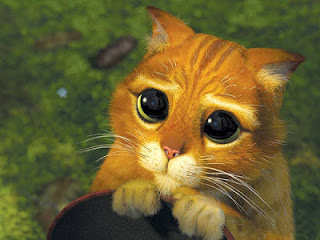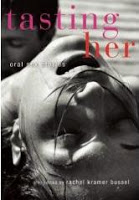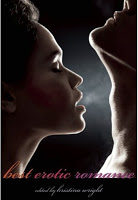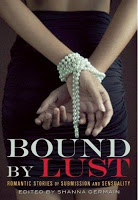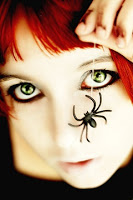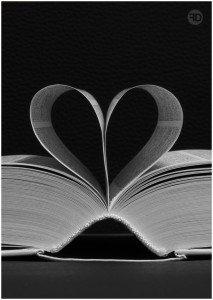 |
| photo by sp333d1 |
You will often hear writers say that they write for themselves, and surely this is true for most writers. We are our first readers and often our harshest critics. Nonetheless, I think there is a definite progression to the development of ‘a model reader’ amongst writers in general and quite a specific progression among writers of erotica.
This post is by necessity going to be personal and anecdotal. A model reader is the person you imagine reading the work while you’re conceiving of the story, writing it, polishing it or getting it out there. Getting a firm sense of who that is will give you a better, more realistic sense of how many readers you can attract and some guidance as to how to classify yourself within a genre.
However, there is one very interesting difference between other genres and erotica. A great many erotica writers write their first stories, not as forays into the art/skill of writing, but as masturbatory entertainment. They write something that they cannot find written elsewhere (in the tone or to the standard they require for their arousal) that turns them on. Many others write their first stories as a tool of seduction – to arouse a specific lover – an intimate, handcrafted, experientially endowed gift. I am sure there are probably writers in other genres who make forays into erotica just to test their skill at writing explicit sex, but I’d guess this is probably not where the majority of erotica writers start.
My first piece of erotica (a happily doomed novel) embodied some of my most deeply held erotic fantasies. It wasn’t very well written, and the plot was a complete mess, but if I have to be entirely honest, I was writing for my own arousal. I had no reader in mind. I wasn’t seeking an erotic conversation with anyone.
As I developed as a writer, and especially after I joined ERWA’s ‘storytime’ list, the understanding that this act of writing was a form of communication – an attempt to transfer information from me to a reader through the text – became more apparent. There is nothing like having a story critiqued to give you a solid understanding that your writing is ‘received’ and, sometimes, not in the way you intended.
But the experience also taught me that, on a list as diverse as ERWA’s, there are times when it is not a case of having written a bad story, but that it has ended up in the wrong person’s lap. I am speaking here of stories that contain good grammar, fleshed out characters and a reasonably adequate narrative structure. One of these areas of disjunction was immediately apparent even at an organizational level. Non-consent lies at the heart of some of the most erotic themes for me as a writer. ERWA forbids the posting of non-consensual material. [“Storytime Guidelines” Erotica Readers & Writers Association Website. (Accessed June 21, 2013) ] So, at a most simple level, there were lots of stories I simply couldn’t post. But, at a broader level, when I posted stories on my blog, there were readers who for reasons of ethics or life-experience found my work did not speak to them at all.
Eroticism is one of those areas where lust and disgust nestle in very close proximity. [Stoller, Robert J. Perversion: The Erotic Form of Hatred. New York: Pantheon Books, 1975] For some readers, the mention of a golden shower will ruin their experience of the whole story – so strong is their gut-level disgust of the act. For others, it’s not something that arouses them, but they can feel neutral about it and still enjoy the other parts of the story. For some, you’re ringing their dinner bell at such a basic level, that you don’t even have to describe its eroticism to have them in your pocket.
When I got these radically positive or negative reactions to the things I wrote, I did start slowly to form a picture of my model reader. They were someone who thought critically enough to defer immediate disgust reactions if the eroticism of an act could be made apparent to them in the story.
Time to fess up. I am never going to go out and buy an anthology on watersports. It doesn’t, as a rule, ring my bell. However, the two instances in which I read erotica that contained it and was aroused, were so different and yet, in some ways, so similar, they deserve examination. The two works in question were “My Wet Pet” by Julius (sadly nowhere to be found on the net now) [ Julius. “My Wet Pet” Erwa Storytime Listserve. Date Unknown] and the novel “Darker Than Love” by Kristina Lloyd. [ Lloyd, Kristina. Darker Than Love. London: Black Lace Books (1998)] Neither of these writers assumed a reader with a kink for watersports. They both eloquently focused on the sensory experience rather than just shoving the kink at the reader and both leave the semiotic implications of urine as part of a sex act open for the reader to interpret in their own way. Admittedly, in both these instances, it is the female doing the peeing and the power dynamics in both texts are strangely reversed. That might be why it works for me, but I doubt it. I simply have never read a heterosexual BDSM description of a golden shower where the male was the urinator that didn’t textually assume it would automatically arouse me as a reader. None of them came close to describing the sensation, the power dynamic, the emotional paradox of the experience. I’m sure there must be some out there, but I’ve never encountered one. When I do, I’ll let you know.
In the last decade of writing, I’ve also come to understand that many readers are looking for very sex-positive, very uninhibited erotica where the characters suffer not a moment of ambivalence in regard to the sex. On a personal basis, I find it very boring to write sex without paradox. I like my fictional sex with drama and I like the drama to be in the sex itself or at least its consequences or emotional ramifications. I write for readers who feel similarly. And that cuts down the number readers I can expect to ever have significantly.
When I conceive of the story, at stages during the writing and, most especially, during the polishing, there are about five people I have in mind as model readers. I don’t write for them, but I realize that I do write to them, in the intentional manner of a correspondent, if not in that precise form.
These are the readers I want to arouse. In that sense, these readers are lovers. It is not my aim to bring them to orgasm through the act of storytelling, but I absolutely want them hard or wet and mentally aroused as hell at times, during the reading of a story. I want the paradoxes I pose in my stories to be intellectually erotic teases for them. I want them to yearn for it all to come out right even if, knowing me as a writer, they know it probably won’t end in a happily ever after. I want the story to leave them feeling a bitter-sweet yearning in the same way a real lover kisses you at a corner to take their leave. It’s a good kiss, a kiss that speaks of possibilities, but it’s a complicated pleasure mixed with the pain of parting.
Most of all, if I had to describe my model reader in a single paragraph, I’d say that she or he is someone who can truly enjoy a story without having to absolutely identify with the characters. They are people who are excited by otherness. They enjoy a level of realism that many erotica readers aren’t looking for.
Of course, I get many more readers than this. And I can see by their comments often that I have not satisfied them. For instance, many women who read romance love my male characters but despise my female characters. They cannot identify with her adequately enough to step into her place in the story and instead feel a subtext of sexual competitiveness. Similarly, they get very upset when, at the end, the story doesn’t end happily. This doesn’t bother me. They made read some of what I write – they may even enjoy some of it a great deal, but they aren’t my model reader.
The truth is I’m never going to sell a lot of books. And for many erotica writers, especially with the success of books like ‘Fifty Shades’ and ‘Bared to You’, there is a pressure to sell books and make money. We live in a period where this is the predominant measure of success.
But, for those of you who are struggling to accommodate the marketplace, I’d like to offer this thought. A very few of us are ever going to make a living doing this. There is a valid and, to my mind, essential success in identifying who your model reader is and making them a happy and satisfied reader. No matter how small that readership may be, once they’ve found you and you have found them, there are life-long conversations had and an untold number of delicious seductions in your future.
While pondering this topic, I realized that other writers would have completely differing opinions in who they felt they were addressing when they wrote. I asked two colleagues, Kathleen Bradean and Raziel Moore for their takes on the issue:
Kathleen Bradean says:
When I’m imagining a story, there’s a group of people I envision reading and enjoying it. Most of them are erotica writers who think erotica can be literary and that erotica can be used to explore uncomfortable truths about humans. That may sound highbrow but it’s more like the flesh under a scab you’ve picked off—sometimes nearly whole, sometimes tender and sickly, and sometimes weeping blood. That rawness makes many readers uncomfortable. I envision the reader who won’t look away. I want the ones who lean in.
But that’s when I’m thinking about the story. When I write, the reader fades away. In a short story, there isn’t a lot of room to maneuver around, so each sentence has to be technically sound as well as develop character, evoke setting, move the plot forward, stimulate the senses, and arouse or disturb, worry… My focus is on the craft of writing so I get that right. What good is an idea if you don’t communicate it the best way you can? As if that isn’t enough to demand, hopefully my work has some aesthetic appeal. I am not a baroque wordsmith, nor a spell caster of ethereal mental imagery. My style is more like a Shaker chair. And while not fancy or embellished, it still requires craftsmanship. I can’t possibly focus on all that if I’m distracted by mental images of the reader enjoying each passage. I can see why a writer would though. I can see other writers using their words to seduce, or like love letters. That’s a rather charming idea. But it isn’t me.
Raziel Moore says:
Back when I started writing smut in earnest – I really can’t call it erotica at this point – I had one main motivation and one main audience. The motivation was to write stuff I found personally gratifying, mostly as wank fodder, partly to see if I could write anything at all. The target audience was me alone. Mostly. I wrote as self exploration. To name, and understand, and own the angels and monsters in my head.
If it had been _only_ me, though, I’d never have posted it to usenet forums, or eventually to free erotica sites like ASSTR. I wrote for myself, but also to show “them” what I could do. And I got feedback, in dribs and drabs, and eventually, fans.
Knowing that there were readers out there who react to my stories changed how I wrote. I didn’t think about it consciously for a long time, but it was there – this extra pause sometimes considering the possible reaction of someone besides myself. it grew on me slowly, unawares. Until I actually became correspondence-friendly with a couple readers.
When I know how someone _specifically_ reacts to my words, and I have a relationship with that person – even casually, or subject-specifically, my consideration of them as my reader is pretty unavoidable. I can anticipate, when I think about it, their eyes on the story. It doesn’t necessarily shift things hugely or overtly, but it is a partially known shape or shapes that I am pouring my words into, and there’s a desire to fill that shape the best I can.
Nowadays, I have several good writer/reader friends, and things have shifted again. These presences take a much more active role in my writing. They are almost internal checks and balances for certain aspects of style, or characterization, or craft. These people I write to, in addition to myself, are people I want to _get_ my stuff (As well as get wet or hard at the right spots). For the most part, it drives me to write _better_, but I’d be untruthful if I said my knowledge of what they liked – the buttons I’ve learned or gleaned – didn’t influence some of the details of what I wrote. I write for these readers as well as myself now, and I think I’m better for it. And, as I move forward and write more, perhaps there will be more eyes over my shoulder, more shapes to fill with words.
______
Although not specifically referenced here, these works informed this essay in essential ways:
Umberto Eco (1996) “The Author and His Interpreters,” The Modern World: Porto Ludovica Website. http://www.themodernword.com/eco/eco_author.html (accessed 21 June, 2013)
Lucie Guillemette and Josiane Cossette (2006), “Textual Cooperation”, in Louis Hébert (dir.), Signo [online], Rimouski (Quebec), http://www.signosemio.com/eco/textual-cooperation.asp (accessed 21 June, 2013)
Roland Barthes. The Pleasure of the Text. Farrar, Straus and Giroux (1975)

